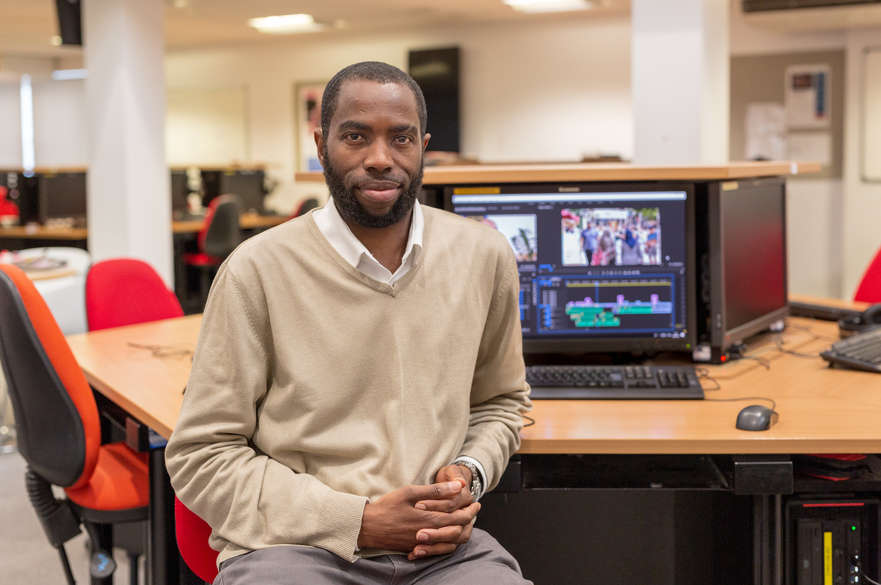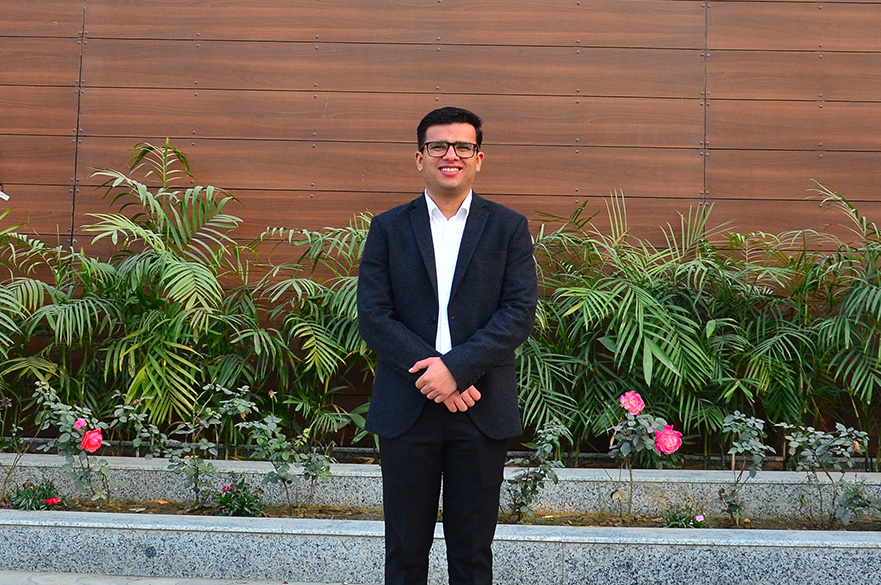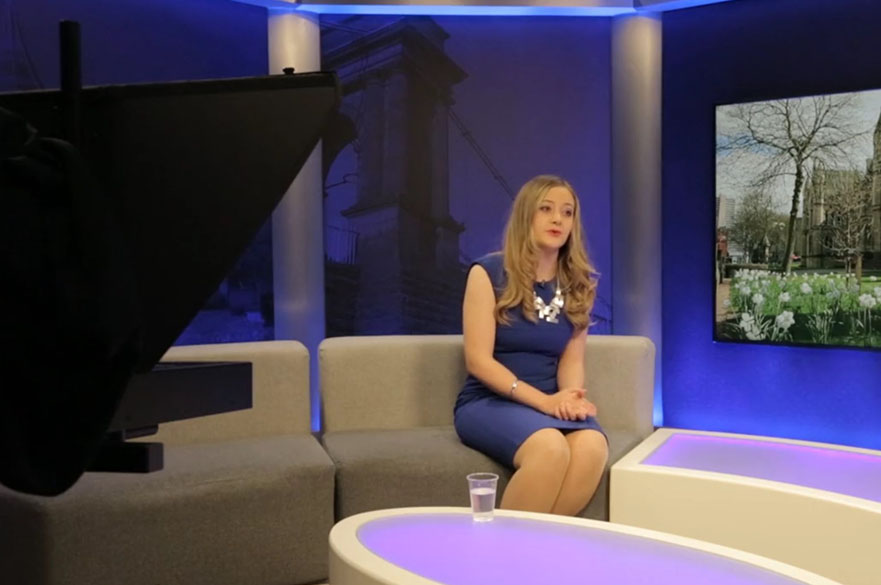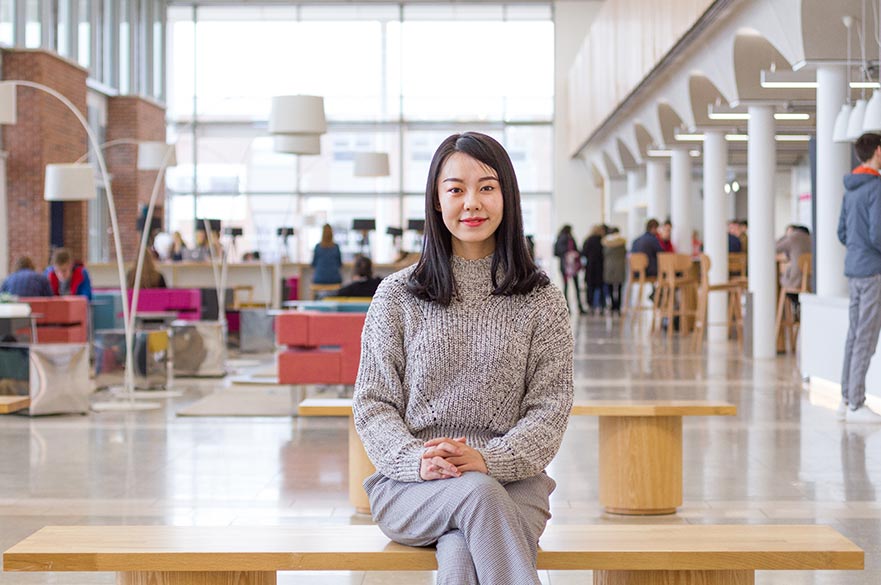
Allan
Njanji
Course studied: MA; PGDip Documentary Journalism
We now offer: MA Journalism
I enjoyed the guest lecture sessions the most during the MA course. I have managed to stay in touch with some of these industry practitioners, who act as mentors on different aspects of my career progression.
More about Allan
Allan is about to start a practice-led PhD in the Centre for Broadcasting & Journalism, focusing on the representation and integration of refugees and asylum seekers.
Why did you decide to do postgraduate study? And then why did you choose to continue to PhD level?
“I decided to do postgraduate study mainly to progress in my current career path as a documentary filmmaker. My undergraduate course mainly taught me the technical aspects of my craft, and I wanted to delve deeper into the fundamentals of investigative journalism.
The decision to progress to PhD level was an easy one as it meant I could do further research and contribute positively in areas I have a passion in. The prospect of being able to contribute to think-tanks, and policy formulation on national and international level was so alluring to me.”
What made you choose NTU?
“When I learnt that CBJ was highly regarded nationally for its journalism courses, and that NTU has a reputation for world-class research, this made my decision to join this university much easier. I also considered the modules that were offered for my Masters degree, and realised that they would provide a strong foundation for my career.”
What did you enjoy most about your MA Documentary Journalism course at NTU?
“I enjoyed the guest lecture sessions the most during the MA course. These provided the opportunity to get input from industry professionals and practitioners, who offered different perspectives as they were detached from the course and university. It also meant that as students we could network and form links with people from different backgrounds offering diverse skill sets and expertise. I have managed to stay in touch with some of these industry practitioners, who act as mentors on different aspects of my career progression.”
Tell us about your Practice-led PhD research project.
“My PhD project explores the creative potential of documentary filmmaking practices to intervene positively within one of the most fraught and contested fields of cultural and media discourse: that of the visual representation of refugees and asylum seekers. The project seeks to develop innovative documentary-making techniques combined with scholarly enquiry to investigate how the mainstream media’s negative depictions adversely affect the integration of refugees within their resettled communities. The project will assess the relative informational and political value of documentary reporting as an instrument of formation of perceptions in communities, and will respond to the findings through the documentary practice itself.”
What do you think about the course staff? How do they support your learning and University experience?
“The course staffs’ knowledge and expertise in their respective fields has been invaluable to my development on the course. From the one-to-one contact as and when needed, to providing overall guidance in one’s career progression, their contribution is indispensable. They also exude warmth, passion and patience in their delivery of content. This also includes the vital support from the technicians within CBJ. From learning new software to acquiring new technical skills, the whole cohort support team is dedicated to making sure the students achieve excellence in their fields.”
What do you think about the facilities available to you?
“The facilities that I have access to are second to none. This includes access to high-end filming and photographic equipment, editing suites, resource rooms and quiet spaces for studying. The 24hr-access to the Boots library is vital as people’s schedules vary, and I found it essential especially during exam or assignment deadline times. Added to this are the various social spaces that the university has for networking and relaxation. I also found The Global Lounge to be a really pleasant space to meet new friends and talk about different cultures.”
How does it feel to be about to complete a Practice-led PhD in the Centre for Broadcasting & Journalism? What do you hope to accomplish?
“When I got news that my application has been successful, I was overjoyed as I had worked hard with my supervisory team to get the studentship award. I am now raring to go on this epic journey, and I can’t wait for the beginning of the academic year. I’ve always wanted such a challenge mainly to prove to myself that I can make a positive contribution to communities, and this practice-led PhD will provide just the right tool for me to accomplish this. I hope that my research will lead to a positive change of sentiment towards people fleeing persecution in their home countries. I also look forward to contribute to think-tanks and policy formulation on social justice issues.”
What was the process like for applying for the Vice Chancellor’s bursary and how does it feel to have received this?
“Applying for the Vice-Chancellor’s bursary was a rigorous process as I had to prepare a proposal that showed originality and practicability in its content, whilst also showing sustainability over the duration of the whole degree programme (3.5-4 years). The panel quizzed me on every aspect of the proposal and my ability to complete the PhD programme. Fortunately I made it through, and was thus awarded the bursary. Having received it was a huge boost and a relief, as it means I do not have to worry about payment of tuition fees and there is also a stipend for my subsistence whilst I concentrate on my research studies.”
What have been the highlights of your time at NTU so far?
“My highlight at NTU was seeing one of my documentary films being screened at Broadway Cinema in Nottingham. We had industry practitioners in audience, which included one of my mentors. She later mentioned that I had surpassed her expectations and she was prepared to collaborate with me on her next project.”
Start you journalism career with NTU
We’ll turn your passion and talent into something that audiences can connect with. Whether you want to work in radio, TV, newsrooms, factual programming, events or PR, we’ll help you take your ability to a professional level.
Still need help?
-

STUDENT PROFILE
Akshat Singh
Media and GlobalisationIndia
https://www.ntu.ac.uk/study-and-courses/courses/our-students-stories/arts-humanities/akshat-singh
-

STUDENT PROFILE
Alex Hamilton
Broadcast JournalismUnited Kingdom
https://www.ntu.ac.uk/study-and-courses/courses/our-students-stories/arts-humanities/alex-hamilton
-

STUDENT PROFILE
Biyang Sun
Media and GlobalisationChina
https://www.ntu.ac.uk/study-and-courses/courses/our-students-stories/arts-humanities/biyang-sun